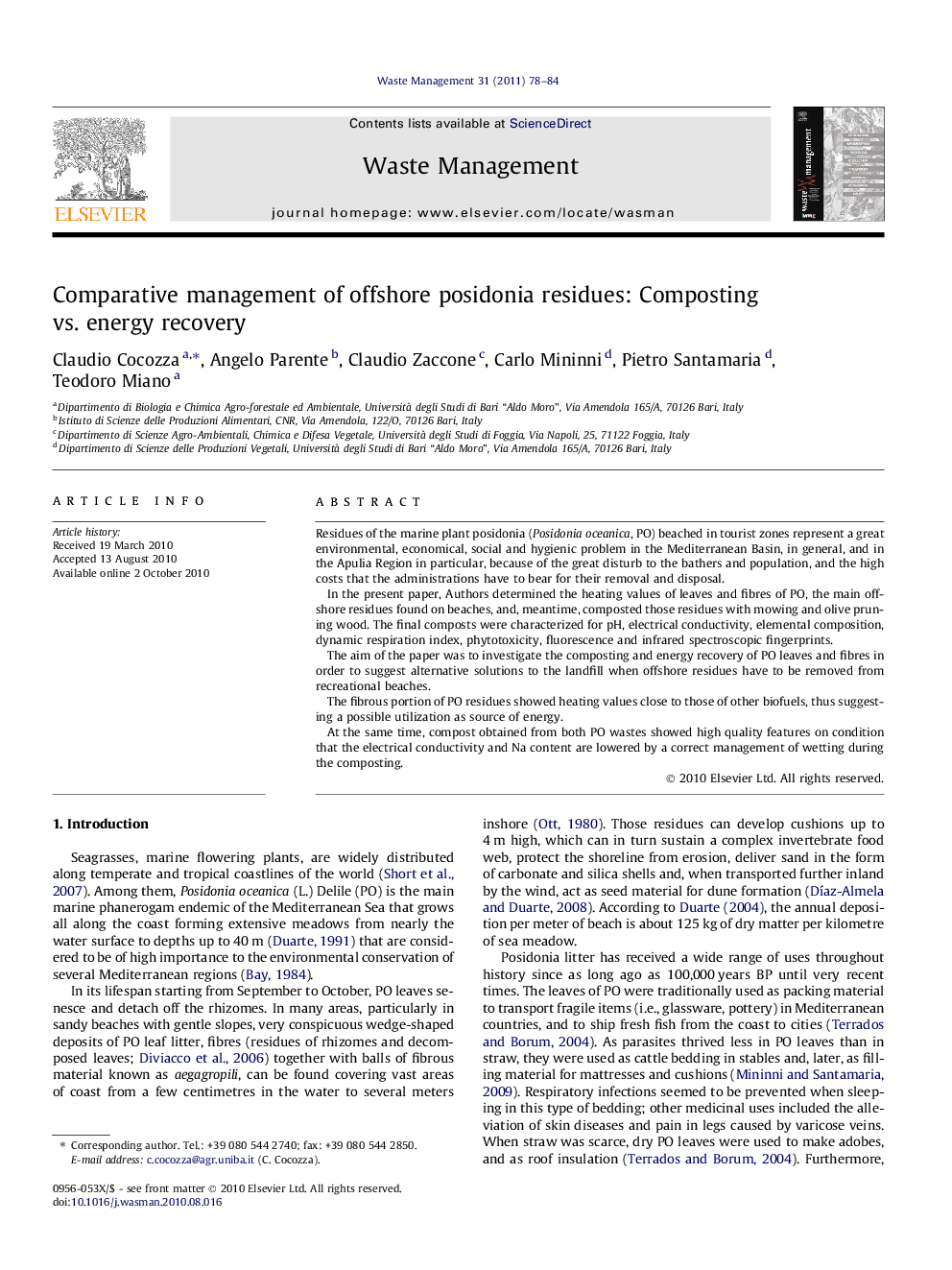| Article ID | Journal | Published Year | Pages | File Type |
|---|---|---|---|---|
| 4472106 | Waste Management | 2011 | 7 Pages |
Residues of the marine plant posidonia (Posidonia oceanica, PO) beached in tourist zones represent a great environmental, economical, social and hygienic problem in the Mediterranean Basin, in general, and in the Apulia Region in particular, because of the great disturb to the bathers and population, and the high costs that the administrations have to bear for their removal and disposal.In the present paper, Authors determined the heating values of leaves and fibres of PO, the main offshore residues found on beaches, and, meantime, composted those residues with mowing and olive pruning wood. The final composts were characterized for pH, electrical conductivity, elemental composition, dynamic respiration index, phytotoxicity, fluorescence and infrared spectroscopic fingerprints.The aim of the paper was to investigate the composting and energy recovery of PO leaves and fibres in order to suggest alternative solutions to the landfill when offshore residues have to be removed from recreational beaches.The fibrous portion of PO residues showed heating values close to those of other biofuels, thus suggesting a possible utilization as source of energy.At the same time, compost obtained from both PO wastes showed high quality features on condition that the electrical conductivity and Na content are lowered by a correct management of wetting during the composting.
Research highlights► Posidonia fibers are suitable for energy recovery and composting. ► Leaves of posidonia are suitable only for composting. ► Posidonia debris may provide high quality compost. ► Posidonia based composts should be used to fertilize acid soils.
